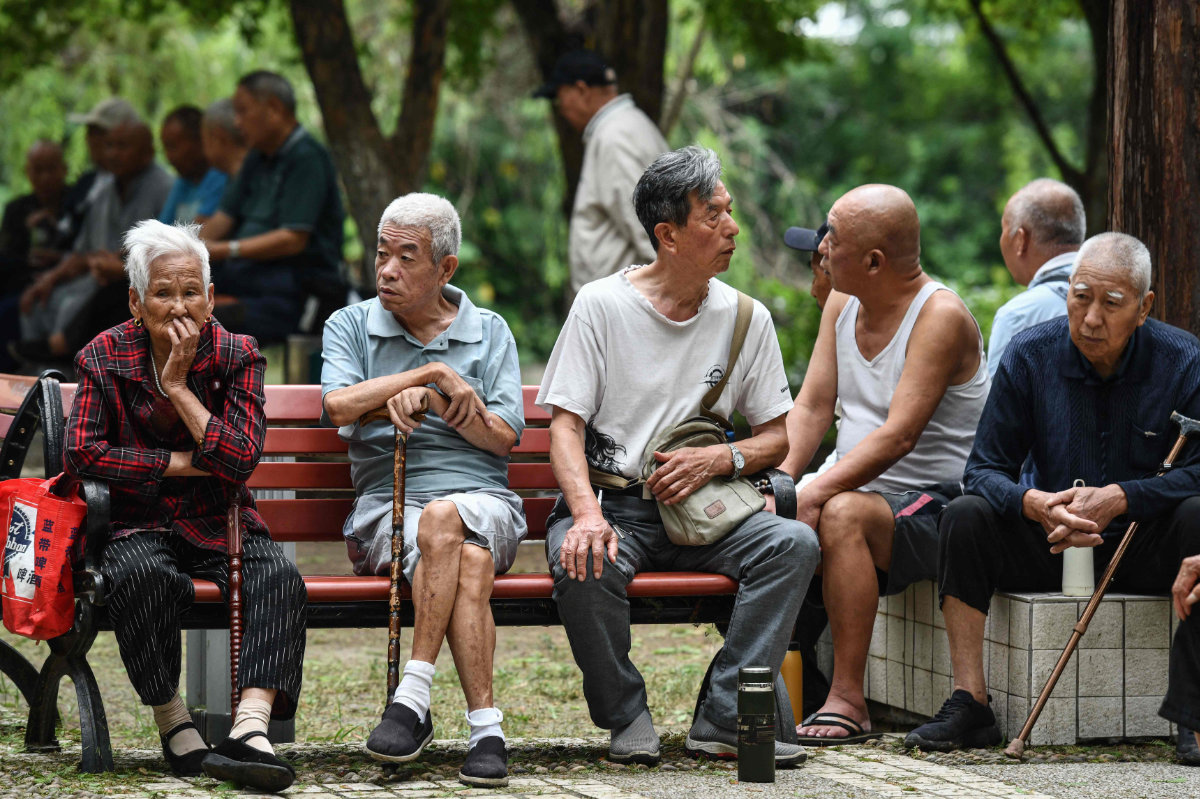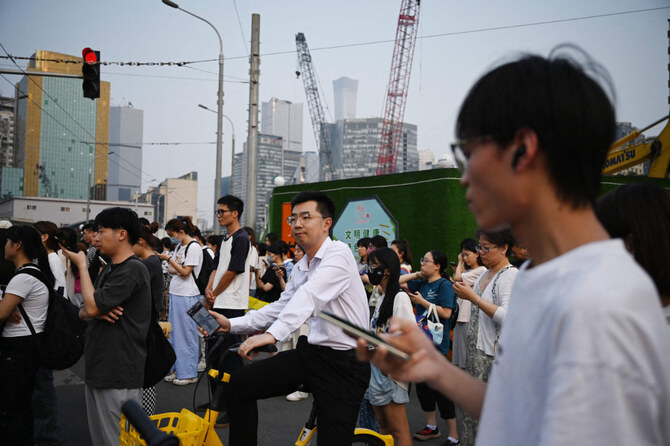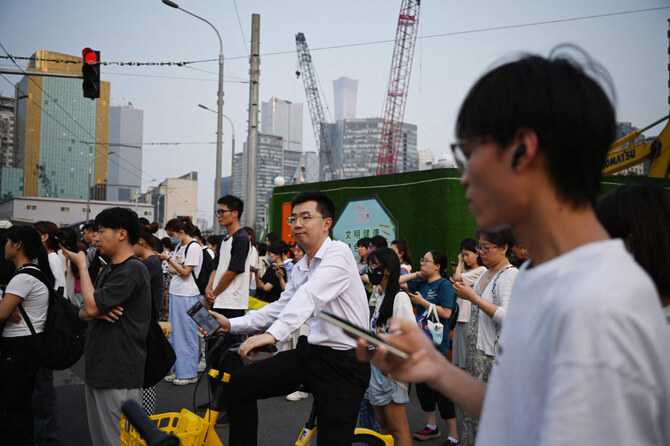BEIJING: Starting next year, China will raise its retirement age for workers, which is now among the youngest in the world’s major economies, in an effort to address its shrinking population and aging work force.
The Standing Committee of the National People’s Congress, the country’s legislature, passed the new policy Friday after a sudden announcement earlier in the week that it was reviewing the measure, state broadcaster CCTV announced.
The policy change will be carried out over 15 years, with the retirement age for men raised to 63 years, and for women to 55 or 58 years depending on their jobs. The current retirement age is 60 for men and 50 for women in blue-collar jobs and 55 for women doing white-collar work.
“We have more people coming into the retirement age, and so the pension fund is (facing) high pressure. That’s why I think it’s now time to act seriously,” said Xiujian Peng, a senior research fellow at Victoria University in Australia who studies China’s population and its ties to the economy.
The previous retirement ages were set in the 1950’s, when life expectancy was only around 40 years, Peng said.

Elderly people rest at a park in Fuyang in eastern China's Anhui province on September 13, 2024. (AFP)
The policy will be implemented starting in January, according to the announcement from China’s legislature. The change will take effect progressively based on people’s birthdates.
For example, a man born in January 1971 could retire at the age of 61 years and 7 months in August 2032, according to a chart released along with the policy. A man born in May 1971 could retire at the age of 61 years and 8 months in January 2033.
Demographic pressures made the move long overdue, experts say. By the end of 2023, China counted nearly 300 million people over the age of 60. By 2035, that figure is projected to be 400 million, larger than the population of the US The Chinese Academy of Social Sciences had previously projected that the public pension fund will run out of money by that year.
Pressure on social benefits such as pensions and social security is hardly a China-specific problem. The US also faces the issue as analysis shows that currently, the Social Security fund won’t be able to pay out full benefits to people by 2033.
“This is happening everywhere,” said Yanzhong Huang, senior fellow for global health at the Council on Foreign Relations. “But in China with its large elderly population, the challenge is much larger.”
That is on top of fewer births, as younger people opt out of having children, citing high costs. In 2022, China’s National Bureau of Statistics reported that for the first time the country had 850,000 fewer people at the end of the year than the previous year , a turning point from population growth to decline. In 2023, the population shrank further, by 2 million people.

Elderly people chat outside a restaurant along a street in Beijing on March 16, 2023. (AFP)
What that means is that the burden of funding elderly people’s pensions will be divided among a smaller group of younger workers, as pension payments are largely funded by deductions from people who are currently working.
Researchers measure that pressure by looking at a number called the dependency ratio, which counts the number of people over the age of 65 compared to the number of workers under 65. That number was 21.8 percent in 2022, according to government statistics, meaning that roughly five workers would support one retiree. The percentage is expected to rise, meaning fewer workers will be shouldering the burden of one retiree.
The necessary course correction will cause short-term pain, experts say, coming at a time of already high youth unemployment and a soft economy.
A 52-year-old Beijing resident, who gave his family name as Lu and will now retire at age 61 instead of 60, was positive about the change. “I view this as a good thing, because our society’s getting older, and in developed countries, the retirement age is higher,” he said.
Li Bin, 35, who works in the event planning industry, said she was a bit sad.
“It’s three years less of play time. I had originally planned to travel around after retirement,” she said. But she said it was better than expected because the retirement age was only raised three years for women in white-collar jobs.
Some of the comments on social media when the policy review was announced earlier in the week reflected anxiety.
But of the 13,000 comments on the Xinhua news post announcing the news, only a few dozen were visible, suggesting that many others had been censored.

























